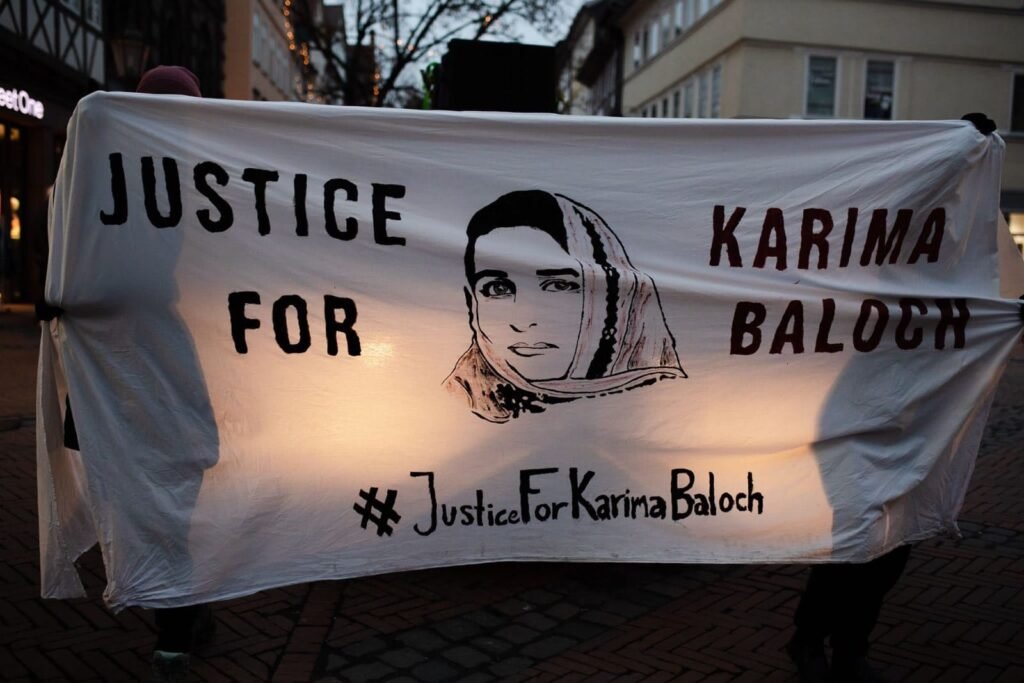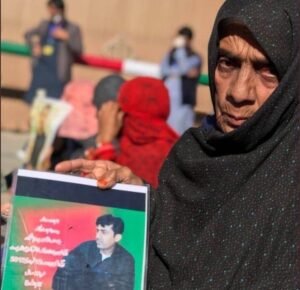Advocacy in Exile: The Story of Hope and Justice in Balochistan

Photo by @Human Rights Council for Balochistan for ADN
Abdullah Abbas speaks with calm determination. His voice is steady, each word carrying the weight of years of struggle—and the hope of what still lies ahead.
Born and raised in Balochistan, a vast and vibrant region that comprises 44% of Pakistan’s land but only 6% of its population, Abbas has devoted his life to exposing the human rights abuses that continue to be overlooked by much of the world.
In a recent interview with the Afghan Diaspora Network (ADN), Abbas spoke candidly about the many layers of trauma in Balochistan—from the long-term psychological toll of enforced disappearances to the courage of families who continue to seek justice. The conversation also revealed growing solidarity between communities across the region who face similar state-led violence.
“Balochistan is sparsely populated and deeply community-based,” he explains. “When someone is forcibly disappeared, the trauma doesn’t end with the individual—it spreads across entire villages.”
In a region where communities are tightly knit, the disappearance of one person sends shockwaves through an entire town.
“It’s a form of collective punishment,” Abbas says. “Fear is the goal, and fear is what takes hold.”
His activism began as a student, but by 2009—when Pakistan’s military intensified its crackdown on Baloch activists—his work became increasingly dangerous.
“Enforced disappearances and extrajudicial executions became common,” he says.
By 2011, Abbas was forced to flee Balochistan due to escalating threats. A year later, a conversation with fellow exiles highlighted a painful truth: the near-complete absence of humanitarian documentation from their homeland.
“That’s when I knew I had to act,” he recalls.
In 2015, Abbas arrived in Germany and applied for asylum. It was a turning point, offering him the safety and platform he had long needed.
Just a year later, he was elected General Secretary of the Baloch Human Rights Organization. That same year, another milestone followed: the creation of the Human Rights Council of Balochistan in Sweden. In 2020, the two organizations united, and Abbas now serves as Executive Director.
Their mission is clear and urgent: to document and expose the hidden atrocities committed in Balochistan.
“There’s hardly a family untouched by loss,” Abbas says. “You won’t find a single village that hasn’t been scarred by disappearances or killings. Women bear most of the burden.”
“In most cases, the kidnapped are men—the sole breadwinners. Their wives and mothers are left to search, care for children, and hold families together, all while living in fear.”
He shares a particularly haunting exchange between two families of victims. One man, whose son had been abducted and later found dead, expressed his grief. Another man—whose father had been missing for more than ten years—responded not with envy, but empathy.
“At least you have closure,” he said. “You can grieve. We are still searching.”
Through the Human Rights Council of Balochistan, Abbas and his team gather and present evidence to international bodies, giving voice to those who can no longer speak for themselves. They also build alliances with other marginalized groups facing similar oppression worldwide.
“Our work is not just about documentation,” he emphasizes. “It’s about restoring dignity. It’s about resisting erasure.”
For Abbas, the fight is deeply personal—but its relevance is universal. In Balochistan, fear has long been used to silence. Through his tireless advocacy, Abbas is working to end that silence—and to ensure the world finally listens.
Abbas’s interview can be watch on ADN YouTube Channel.










